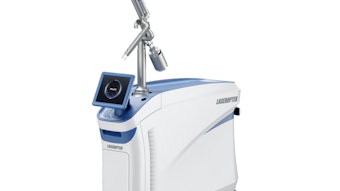
Sir Richard Branson, the British business magnate, billionaire and high school dropout, said, “Succeeding in business is all about making connections.” While your medical practice may not be the next Virgin Airlines, professional networking can make the difference between having a mediocre practice and a highly successful one.
Professional networking is the process of building professional relationships. These relationships help you by bringing in new patients through referrals.
As a primary source of new patients, referrals are beneficial for a number of reasons. First, patients are much more likely to act on a recommendation to visit your practice if it comes from a healthcare provider or nonmedical provider they trust. Second, your practice has more credibility in the eyes of the patient if they have been referred to you by another professional versus a radio, Internet or print advertisement.
An additional benefit of professional referrals is they are free. Unlike advertising, you are not paying money to get your practice in front of prospective patients. You simply ask other professionals to refer patients to you, and you reciprocate by referring patients to them.
Identifying Your Referral Network
Now that you know why developing a professional network is beneficial, let’s talk about with whom you should cultivate referral relationships. The most obvious is other healthcare professionals. These may include local general practitioners, OB-GYNS, cosmetic dentists, and even other aesthetic physicians who offer complementary procedures that you do not offer (and vice versa). You also want to look outside of health care to businesses that serve a similar demographic, such as high-end day spas, hair salons, clothing boutiques and gyms. Wedding and event planners are another good source of referrals.
When investigating opportunities for professional networking, it can be helpful to consider your target patient base. For example, if you offer services for men and view that as a potential growth area for your practice or medspa, partner with upscale male hair salons. More and more men are visiting aesthetic practices for hair restoration, antiaging and body contouring procedures.
Attending professional conferences and joining local societies or charitable organizations create excellent networking opportunities. Even a short chat with a colleague you happen to bump into in the hospital lounge can provide future referrals. The key is to be prepared to build on the conversation or relationship.
How To Reach Out
Once you have identified an individual or business you feel would be a good referral partner, reach out to them with a personal note or phone call and ask to meet either at their business or for coffee. By calling ahead and requesting a few minutes of their time, rather than just dropping in, you show respect for their schedules and you are more likely to have their full attention. Bring along a service menu and sample marketing materials to show them what you do, and suggest holding a joint event to generate new patients for both of you. (Most professionals prefer to meet with their peers, so don’t delegate this responsibility to a staff member.)
Many people are uncomfortable reaching out to new people. Others view asking for help as a sign of weakness or feel that asking another professional for a “favor” is poor form. Neither could be further from the truth! Realize that networking should be mutually beneficial. You aren’t just asking for their referrals, you will also be referring patients or clients to them.
Still a little nervous? Here are some suggestions: When you approach other professionals, acknowledge that they are respected members of the community, that you would value their help in growing your practice and that you would be happy to reciprocate with referrals to their businesses. Most professionals are happy to say yes to such a request. Keep in mind, the worst thing that can happen is that they decline, which leaves you in the same position you were in if you hadn’t asked. In short, you have nothing to lose and everything to gain.
Making the Relationship Work
Joint events are a good way to build referrals between clients of your business and nonmedical entities. If you are partnering with a local day spa or hair salon, host a lunch-and-learn at the spa or salon and share information about your services. If you are partnering with a local fitness center, invite their members to an open house where you offer mini-services, product samples and education. Prepare customized materials to promote the event that include both your practice name and the partnering business. Make it simple for the business you wish to partner with to say yes by creating all of the materials, providing refreshments and taking the lead on marketing so that it is a nearly turnkey event for the guest firm.
To build the referral relationship and promote goodwill among local business owners, host a special professionals’ night at your practice. Provide hors d’oeuvres and wine, allow attendees to introduce themselves and their businesses and give everyone a tour of your facility. You can even let them experience some services firsthand or give each attendee a product sample or a gift card for a service at a later date. Have marketing materials available for them to take with them.
When you get a new patient referral, immediately send a thank you note to the referring professional, and be sure your staff is familiar with your local referral partners, so they can help spread the word.
Cheryl Whitman is founder and CEO of Beautiful Forever, an aesthetic business consulting firm. Contact her at [email protected], 561.299.3909.
Image copyright Pen Ash/Pixabay











